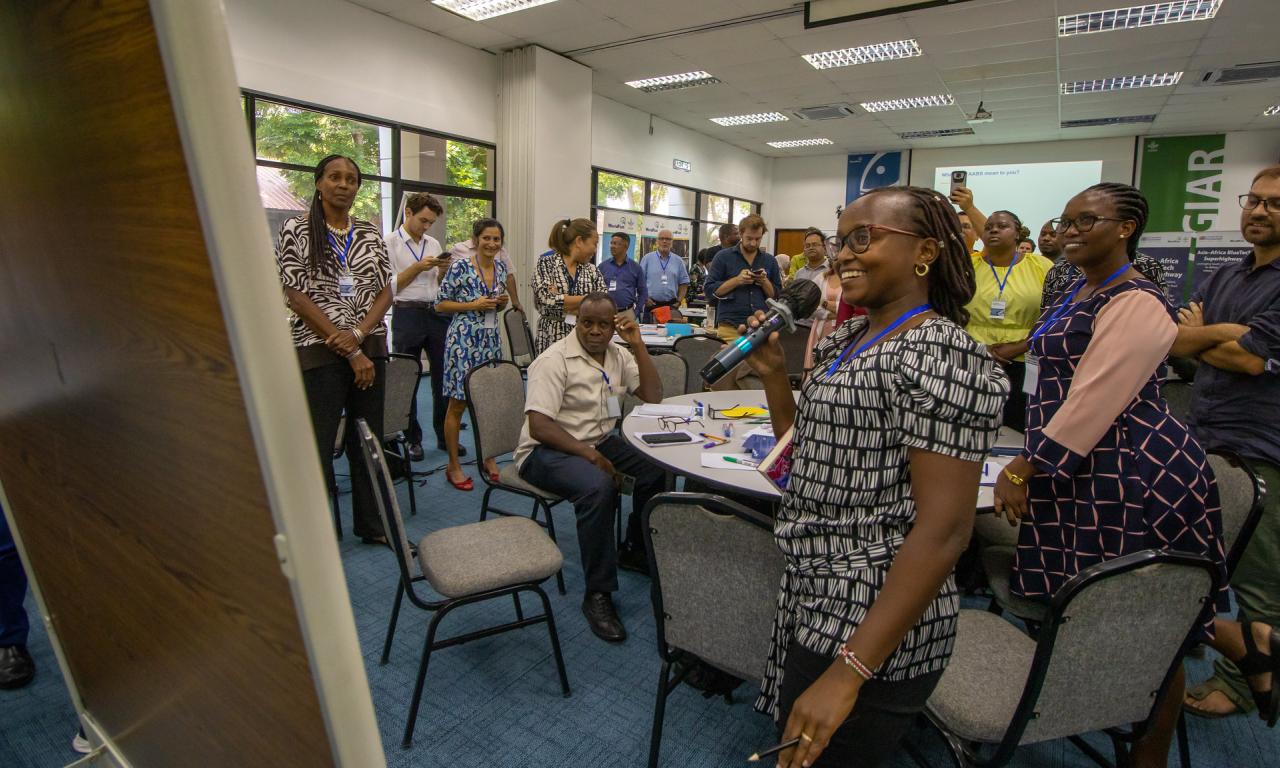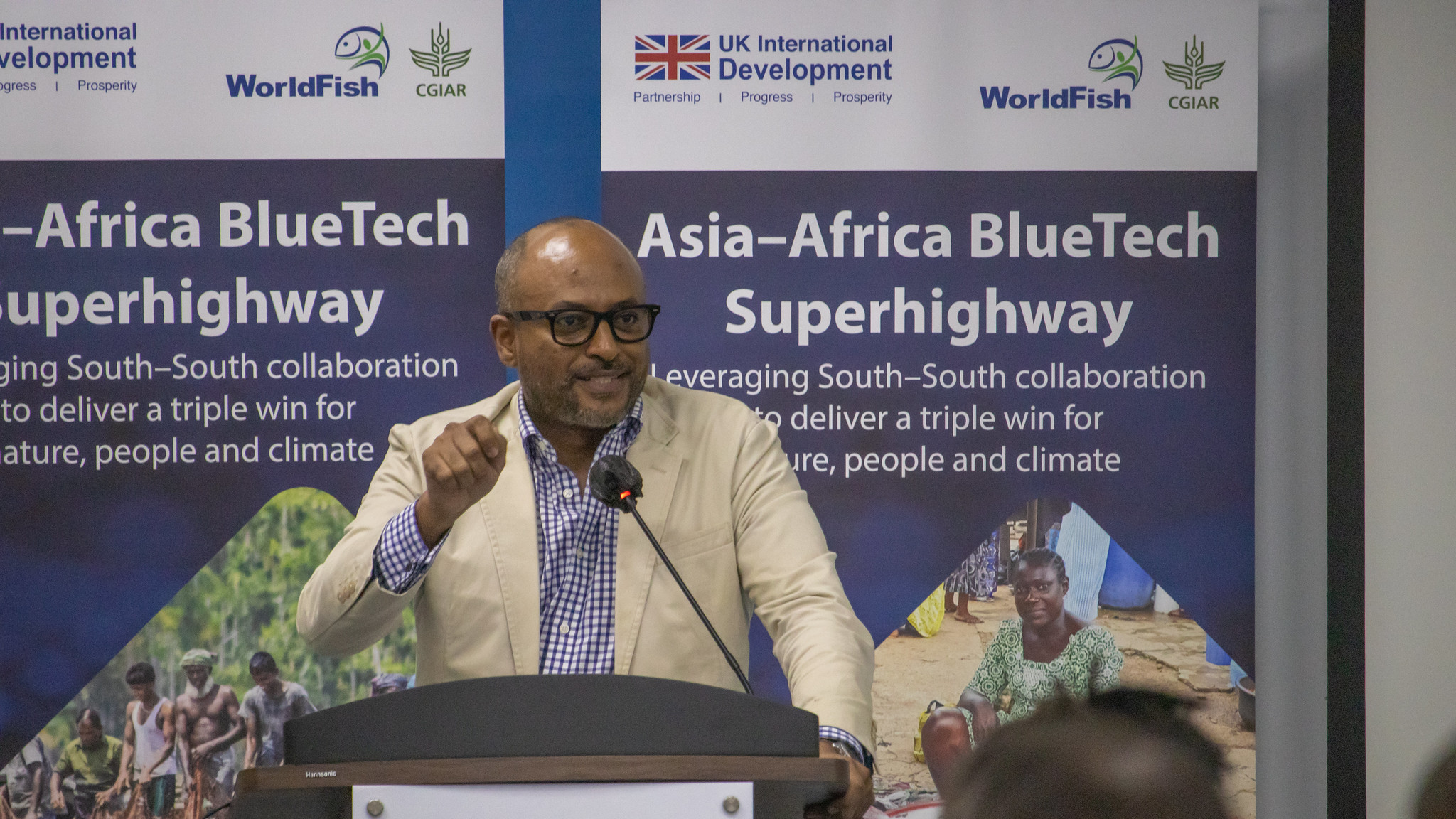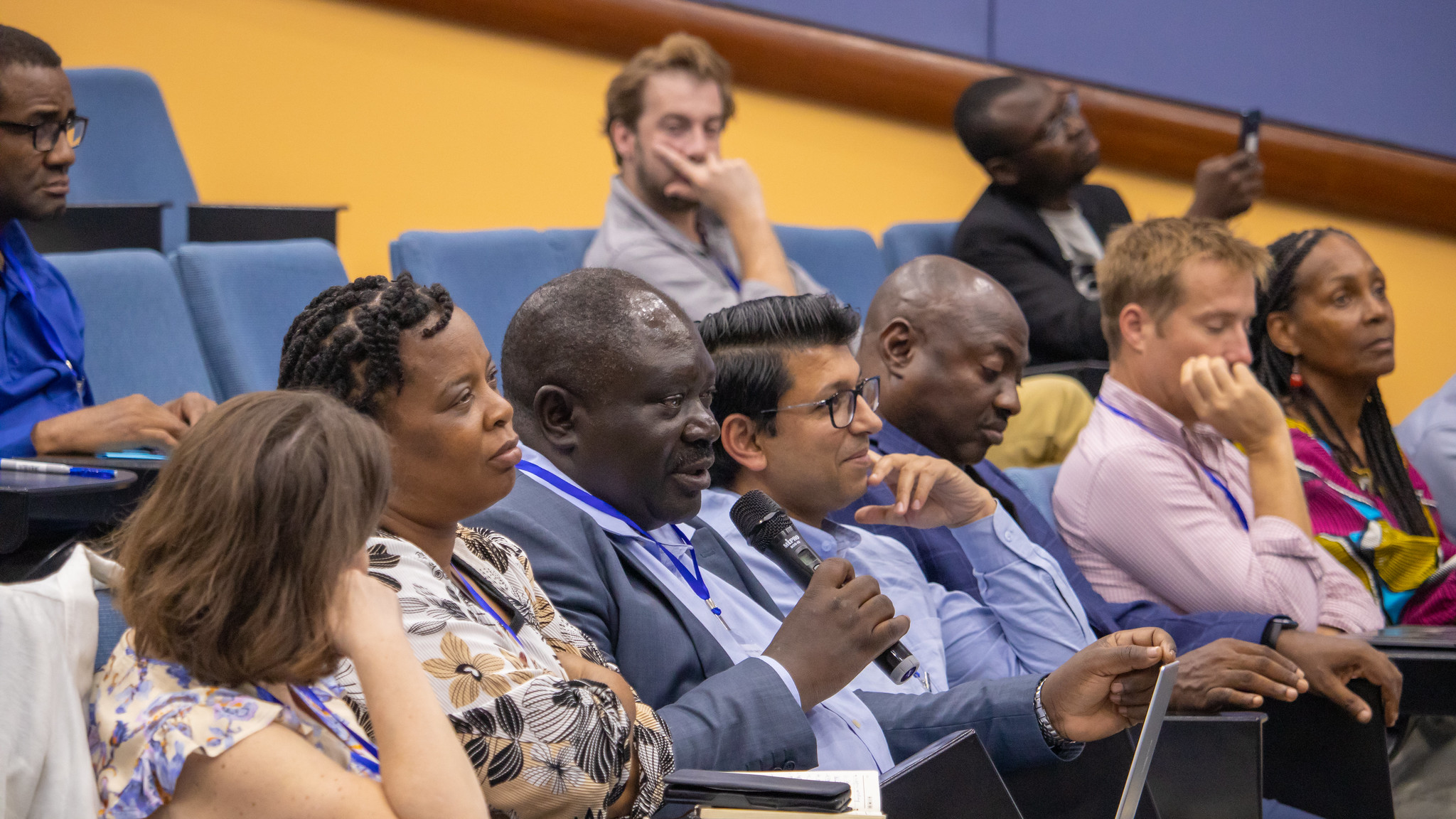
-
Over 70 experts came together in Penang for the Africa—Asia Bluetech Superhighway (AABS) project's inception workshop.
-
AABS targets systemic aquatic sector challenges through four technically focused work packages.
-
South-South collaboration underpins AABS to adapt proven innovations and practices to regional contexts.
When over 70 experts from across the world unite with a common goal, the atmosphere buzzes with potential.
This was evident at the WorldFish headquarters in Penang, Malaysia, during the inception workshop of the Africa—Asia Bluetech Superhighway project (AABS), held October 9-12.
The up to £44.5 million UK-government-funded venture under its COAST program is not just about bridging aquatic foods technology gap between Africa and Asia, but creating a two-way exchange of knowledge, innovations, and ideas.
Speaking at the inception workshop, Patrick McMahon, Nature and Adaptation Policy Officer in the Foreign and Commonwealth and Development Office (FCDO) said, “we wanted to work with Worldfish on this as they have really great experience in producing evidence and with the innovations that they're looking at, it's a fantastic opportunity to expand the evidence base.”
“The ambition we have for this project is big,” said Essam Mohammed, Director General of WorldFish, in opening the 3-day workshop. “Through AABS, we have set out to tackle systemic problems in the aquatic food sector in Asia and Africa, and I am excited about what will come out of this workshop and from the years to come,” he said.

The Africa—Asia Bluetech Superhighway (AABS) has prioritized four key technical areas of focus or work packages, which will be synergistically implemented over the 7 years of the project.
Work Package 1: Digital Coasts aims to fill in data gaps to understand the intricacies of small-scale fishing systems better. This is the bedrock of enabling transformative changes in aquatic food systems. With better data, policies can be crafted to support small-scale fishers.
Work Package 2: Integrated Multi-Trophic Aquaculture will explore innovative farming in saltwater environments, such as seaweed. This package aims to open new doors for food production and improved livelihoods in coastal areas.
Work Package 3: Fish Distribution Systems is aimed at reducing food loss and waste. From catching to cooking, there’s a need to ensure that aquatic food remains fresh, as nutritious as possible and that waste is minimized.
Work Package 4: Incentive-Based Fisheries Management will explore designing incentives to promote sustainable fishing to ensure fish stocks remain healthy for future generations.
Importantly, outcomes from AABS will supply evidence to build and scale for COAST's other initiatives.

South-South Collaboration
A key aspect of AABS is the concept of South-South collaboration. Bringing implementing partners and decisions-makers together from across Africa and Asia, AABS will enable a dynamic exchange of ideas, innovations, and lessons amongst peers from different countries, fostering a country-led adaptation and scaling of solutions tailored to the contexts and challenges faced by their respective communities.
Nyawira Muthiga, from Wildlife Conservation Society, Kenya, outlined two things she saw the project achieving. “What I'd like to achieve is to be able to get science-based solutions for the management of small-scale fisheries in the Western Indian Ocean, and in Kenya,” adding that the project will help to gain clear picture of the involvement of women small scale fisheries, this project will allow us to map what's going on at the moment, and then be able to target where interventions can be for women,” she said.
Mateus Tempe, Chief Operating Officer for Pro Azul Mozambique, said, “Through this workshop, we get to learn by interaction with other countries and see what their experiences have been. And what are their plans for the future, see where they failed, where they have succeeded and what there is for us to replicate in our individual countries.”
“The South-South collaboration aspect of the project is a key area and I think it's a fantastic principle and something that needs to be put in practice. That's part of what this workshop is about – it’s seeing how do you make that happen? Whether that's between countries or within countries between different stakeholders,” said McMahon from FCDO.
Next Stop: In-Country Workshops
The 3-day inception workshop marks the starting point for AABS. Next up are country-specific workshops in Tanzania, Kenya, and Nigeria to delve deeper into local contexts and bring together diverse stakeholders to operationalize the work packages—local partners, extension, associations, financing institutions, policy-makers, NGOs, and community representatives.
See photo gallery for AABS inception workshop.
Learn more about AABS here